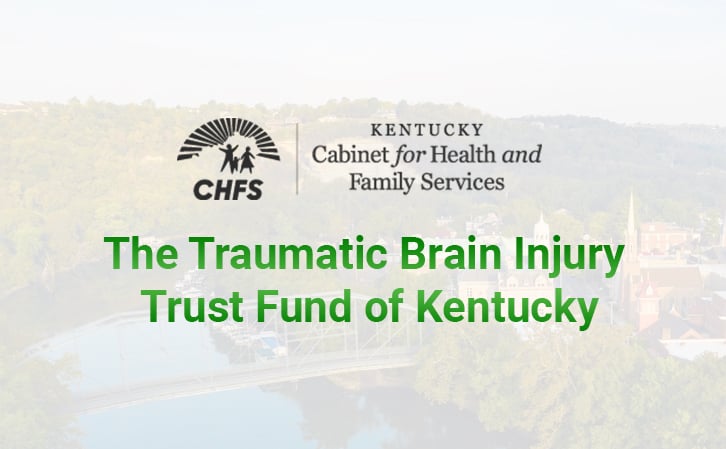The Traumatic Brain Injury Trust Fund of Kentucky

In Kentucky, the TBI Trust Fund is one of the most important resources for people with brain injuries in the state. Established in 1998 by two women with family members who have brain injuries, the trust fund began as an advocacy effort to establish the trust fund. In time, a bill was passed to establish the TBI Trust Fund. The TBI Trust Fund of Kentucky is funded by a surcharge on DUI and other traffic violations in the state.
No matter your age, the TBI trust fund can be of assistance to all Kentucky residents with a brain injury. 22,000 people each year sustain a new brain injury in Kentucky. The trust fund provides funding for a wide variety of services that are needed by people with brain injuries, with one of the biggest services provided being case management.
The TBI Trust Fund's main goal is to ensure all Kentuckians are as independent in the community as possible and to help them maintain a high quality of life. It also was created to ensure participants have access to the therapies they need. Continue reading to discover the eligibility requirements for the TBI Trust Fund, as well as the wide array of services it will pay for.
Eligibility Requirements

Like most trust funds that are funded by surcharges through various traffic fines and the like, in order to be eligible for Kentucky's TBI Trust Fund, one must be a Kentucky resident first and foremost, and one also must have a medically documented brain injury including paperwork to prove an injury did occur. All ages are eligible to apply, as well as all income levels. When an individual applies to the trust fund, at no time does any representative of the fund look at an applicant's finances.
In addition, one must be in the community in a home environment and not be in any kind of nursing facility or be an inpatient at a hospital. Also, people with spinal cord injuries are not eligible, nor anyone with psychiatric disorders, progressive dementia, birth defects, or congenital defects that occurred at birth. And there is a waiting list for the TBI Trust fund, however, if your needs have deemed an emergency you can get moved up the list.
What Will the TBI Trust Fund Pay For?

The TBI Trust fund will pay for many important services people with brain injuries need. It funds case management, which helps people with brain injuries be connected to the funding as case management is required. Also, the trust fund will pay for structured day programs, psychological services, and supported employment services since many people with brain injuries want to get back to work. Prevocational services are also paid for.
If companion services are needed or respite care, these are paid for is well by the trust fund. And occupational and speech and language services considered some of the most important therapy after a brain injury, is also covered by this fund. Hospital bills, however, institutionalization fees, and medication costs are not eligible under the trust fund.
It's important to know that an individual can receive up to $15,000 per year through the program, and a maximum of $60,000 over their lifetime. The only cost not counted against the sum is case management services. The average amount the TBI Trust fund spends on an individual is $3,000 per year. The most requested service from the TBI Trust Fund is respite services.
To apply for the Kentucky TBI trust fund, you can do so online here: https://prd.webapps.chfs.ky.gov/GenLogEX/Detail.aspx?TK=50&Item=0. You can also apply by calling this toll free number between 8:00 AM and 5:00 PM Eastern: (855) 816-9577. While this amazing trust fund helps in huge ways, it’s important to know that only 1,000 individuals each year are helped by the fun. All others must go on a waiting list.
- Learn more: https://chfs.ky.gov/agencies/dail/Pages/tbitrust.asp
Stay Updated on Advancements On Traumatic Brain &
Spinal Cord Injuries
About the Author




